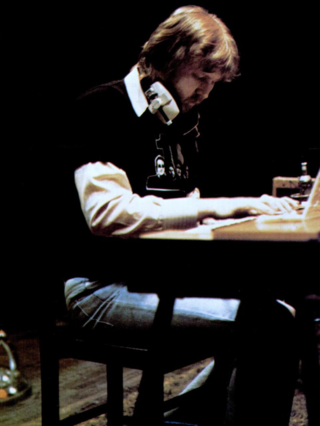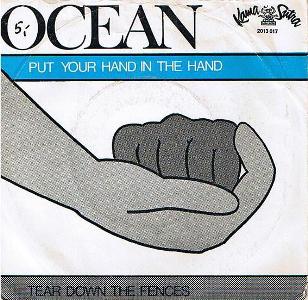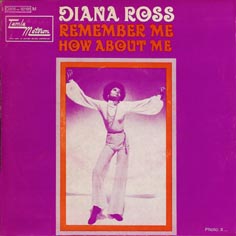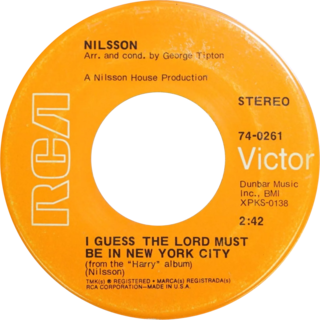
Harry Edward Nilsson III, sometimes credited as Nilsson, was an American singer-songwriter who reached the peak of his success in the early 1970s. His work is characterized by pioneering vocal overdub experiments, a return to the Great American Songbook, and fusions of Caribbean sounds. Nilsson was one of the few major pop-rock recording artists to achieve significant commercial success without performing major public concerts or touring regularly.
"Without You" is a song written by Pete Ham and Tom Evans of British rock group Badfinger, and first released on their 1970 album No Dice. The power ballad has been recorded by over 180 artists, and versions released as singles by Harry Nilsson (1971), T. G. Sheppard (1983) and Mariah Carey (1994) became international best-sellers. The Nilsson version was included in 2021's Rolling Stone's 500 Greatest Songs of All Time. Paul McCartney once described it as "the killer song of all time".

"You're All I Need to Get By" is a song recorded by the American R&B/soul duo Marvin Gaye and Tammi Terrell and released on Motown Records' Tamla label in 1968. It was the basis for the 1995 single "I'll Be There for You/You're All I Need to Get By" from Method Man and Mary J. Blige.
Frank Mills is a Canadian pianist and recording artist, best known for his solo instrumental hit "Music Box Dancer".

"Devoted to You" is a song written by Felice and Boudleaux Bryant.

"Coconut" is a novelty song written and first recorded by American singer-songwriter Harry Nilsson, released as the third single from his 1971 album, Nilsson Schmilsson. It was on the U.S. Billboard charts for 14 weeks, reaching #8, and was ranked by Billboard as the #66 song for 1972. It charted in a minor way in the UK, reaching #42. "Coconut" did best in Canada, where it peaked at #5.

"Arrow Through Me" is a song by the British–American rock band Wings, released on their 1979 album Back to the Egg.

"Put Your Hand in the Hand" is a gospel pop song composed by Gene MacLellan and first recorded by Canadian singer Anne Murray from her third studio album Honey, Wheat and Laughter.

"Remember Me" is a 1970 single recorded and released by singer Diana Ross on the Motown label and was included on her 1971 album Surrender. The song was released as the album's first single on December 8, 1970 by the label. It was written and produced by Ashford & Simpson. In the US, the song was Ross' third top forty pop hit within a year, peaking at number 16 on the Hot 100 chart and number 10 on the soul chart. It was also Diana Ross' third entry on the Easy Listening chart, where it went to number 20. It gave Diana her third gold single in a year and her third top 10 charting single in Cash Box, peaking at number eight. Overseas, "Remember Me" reached the top ten in the UK, where it reached number seven. It was the lead single from Ross' 1971 album, Surrender.
"Let the Good Times Roll" is a song that was recorded by Shirley and Lee in 1956. This song was written by the duo, Shirley Goodman and Leonard Lee.

"Country Road" is a song written and performed by American singer-songwriter James Taylor, released in February 1971 by Warner Bros. Records. It is the third single from Taylor's second studio album, Sweet Baby James. "Country Road" is also featured on James Taylor's 1976 Greatest Hits record. The song has been played at most of his concerts since 1970. Randy Meisner, later of the Eagles, played bass on the album version.

"Everybody's Talkin' (Echoes)" is a song written and recorded by American singer-songwriter Fred Neil in 1966 and released two years later. A version of the song performed by American singer-songwriter Harry Nilsson became a hit in 1969, reaching No. 6 on the Billboard Hot 100 chart and winning a Grammy Award after it was featured in the film Midnight Cowboy. The song, which describes the singer's desire to retreat from the harshness of the city to a more peaceful place and an easier life, is among the most famous works of both artists, and has been covered by many other notable performers.

"It Might Be You" is a song with music written by Dave Grusin and lyrics written by Alan & Marilyn Bergman. It was performed by singer/songwriter Stephen Bishop in the 1982 film Tootsie starring Dustin Hoffman and Jessica Lange. The song was nominated for an Academy Award for Best Original Song in 1983.

"One" is a song by American singer-songwriter Harry Nilsson from his 1968 album Aerial Ballet. It is known for its opening line "One is the loneliest number that you'll ever do". Nilsson wrote the song after calling someone and getting a busy signal. He stayed on the line listening to the "beep, beep, beep, beep..." tone, writing the song. The busy signal became the opening notes.

"I Don't Need You" is a song written by Rick Christian, and was first recorded and released as a single in 1978 on Mercury Records, by Rick Christian himself at Shoe Productions, a recording studio/production company in Memphis, Tennessee, but it failed to chart.

"Never Been to Spain" is a song written by Hoyt Axton, originally released on his 1971 LP Joy to the World and later that year performed by Three Dog Night, with Cory Wells on lead vocal. It was featured on their 1971 album Harmony. The recording was produced by Richard Podolor.

"Me and You and a Dog Named Boo" is the 1971 debut single by Lobo. Written by Lobo under his real name Kent LaVoie, it appears on the Introducing Lobo album.

"Friends" is a song written by English musician Elton John and songwriter Bernie Taupin, and performed by John. It was John's third U.S. hit, and his second to reach Top 40 after the breakthrough success of "Your Song".

"I Guess the Lord Must Be in New York City" is a song written and recorded by singer-songwriter Nilsson in 1969. A track from his fourth studio album, Harry, it became his second charting single.

"Gotta Get Up" is a song written by American singer-songwriter Harry Nilsson and the opening track from his 1971 album Nilsson Schmilsson. It was first released as the B-side to his single "Without You". "Gotta Get Up" is an upbeat pop song with a music hall feeling and lyrics about transitioning from carefree youth to adult responsibility. Nilsson based the lyrics on his experiences working at a bank and on his parents.

















